Created in Charlotte, ‘Girls on the Run’ has gone national with its powerful message
“Girls on the Run” was an organization born nearly three decades ago, emerging from the chaos of one Charlotte woman’s life.
It started slowly, with 13 third- and fourth-grade girls later joining that woman to learn about running and life skills in 1996 on a dirt track at Charlotte Country Day School.
But for the past 27 years, “Girls on the Run” has picked up incredible speed. And on Feb. 1, as we celebrate “National Girls & Women in Sports Day,” we also need to celebrate a once-local organization that has now served more than 2 million girls in all 50 states (plus Canada) through its programming, allowing them to gain confidence and leadership skills while exulting in both the outdoors and each other.
It’s a remarkable tale, fueled by volunteers (53,000 trained coaches will volunteer their time for the program in 2023) and parents who want to raise strong daughters and see “Girls on the Run” as a way to help them on that mission.
Plus, it’s fun. “Girls on the Run” — a 501(c)(3) non-profit organization — has brightened millions of lives.
“We’re a joy factory, really,” said Deborah Pleva, who is the senior director of communications at “Girls on the Run” and also a volunteer coach. “And who doesn’t want to be on the production line of a joy factory?”
But the “Girls on the Run” origin story wasn’t all sunshine.
It began in darkness.
If July 6, 1993, had turned out differently, “Girls on the Run” wouldn’t exist. On that day, Molly Barker — outwardly Miss Perfect when she attended Charlotte Country Day in high school and then UNC in college — was 32 years old and mired deep in a personal crisis.
“I hit bottom that night,” Barker said. “I had been struggling with alcohol abuse and addiction, pretty much since I was 14 years old. And July 6 was a very, very dark night. I was pondering ways to disappear. I was just so deep inside this box of shame.”
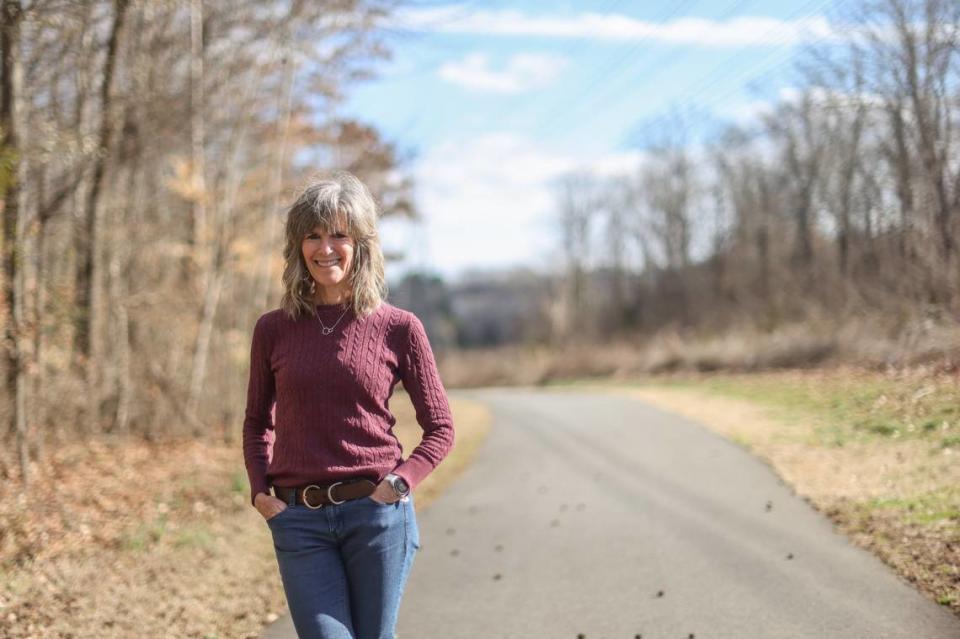
Her sister helped her through that night. Barker was neck-deep in what she considered to be her failures. Her first marriage had crumbled. She had tried many times to get sober and failed.
But she had always liked to run, and the next day she went on a jog in Charlotte’s Dilworth area. A massive storm was brewing.
“There was thunder and lightning, and the sky had a weird sort of yellow tint,” Barker said. “It was incredibly tactile and I just had this experience where I felt nothing. I wasn’t a woman. I wasn’t an addict. I wasn’t a divorced person. I wasn’t poor. I wasn’t a runner. ... And when I came out of that, I realized that I’d been allowing external systems and forces to define me. Everything changed after that. ... Some spiritual awakenings happen slowly. Mine was like a bat upside the head.”
‘A cool camp counselor’
Still, it took close to three years for Barker to coalesce her ideas and come up with “Girls on the Run.” She began at her alma mater, Charlotte Country Day, since she had connections, having once taught chemistry there as well. She put up hot pink flyers advertising an after-school program that said “Girls on the Run” was “fun, fantastic and just for girls.”
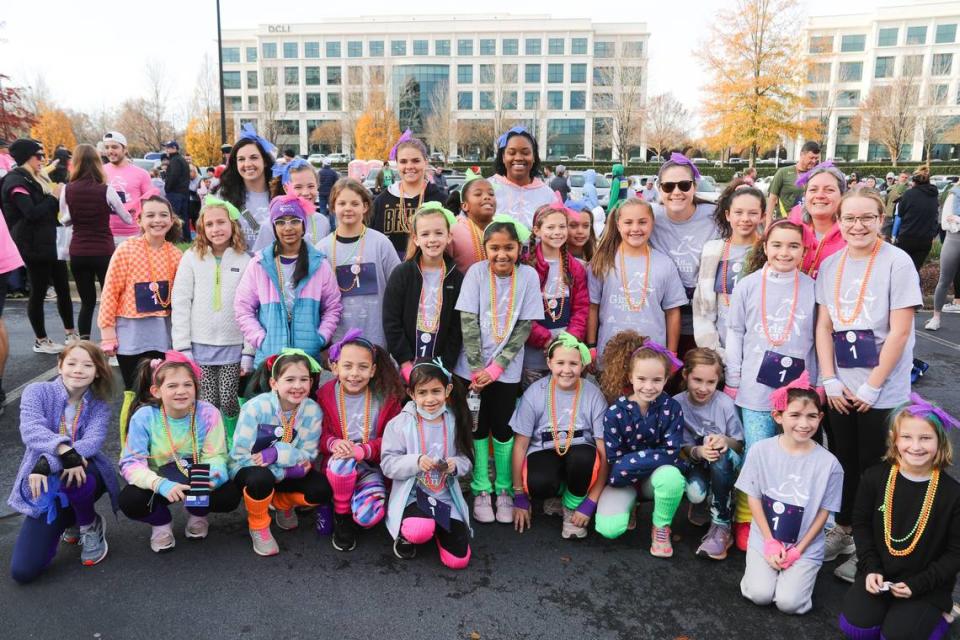
Thirteen girls from Charlotte Country Day signed up. Those girls are now young women in their mid-30s, and some of them remain friends today.
“I was on the shy side,” said Adelaide Belk Martin, one of the original 13. “It helped me make friends and bond with other girls in a smaller setting.”
“Molly was like a cool camp counselor,” said Sarah Schweppe, another of the original 13. “She was energetic, patient and full of ideas.”
Both Martin and Schweppe liked the program so much — and made such a lifelong commitment to running — that they eventually ran marathons as adults.
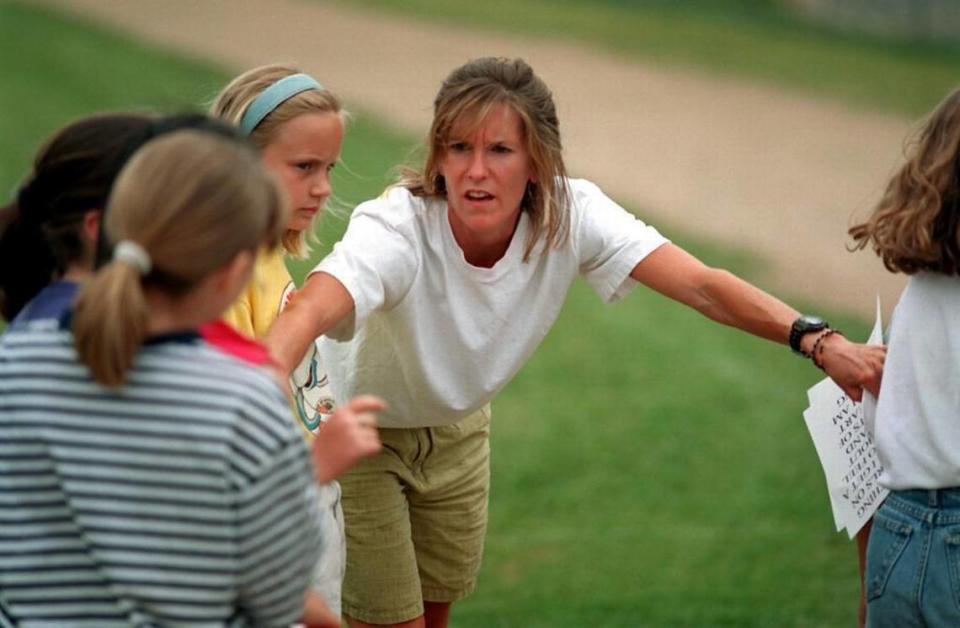
Schweppe seemed to have an inkling of how far “GOTR” would spread even as a third-grader, coming home to her parents one day and proclaiming that “Girls on the Run” was one day going to be “as big as Girl Scouts.”
But back in 1996, Barker’s idea of finishing the season with a 5-kilometer run seemed nearly out of reach for a 9-year-old.
“That seemed like an incredibly long distance,” Schweppe said. “But we did it, and it was the biggest accomplishment of my life at that point. I ran it with my mom.”
The 5K idea was so successful that “Girls on the Run” seasons — often two after-school meetings per week, for 10 weeks during either the spring or fall — still conclude with a 5K today. The “races” are generally untimed. The idea is that finishing the race at all — whether you run or walk — means you’re successful. Veteran “Girls on the Run” observers know to line up about 100 yards before the finish line for the best view, delighting in the gleam in each young girl’s eyes when she knows she’s going to make it.
Said Jamie Krusch, now the executive director for the “Girls on the Run” chapters in the greater Charlotte area: “Our 5Ks are the most magical thing. They are so fun. And everyone gets a medal.”
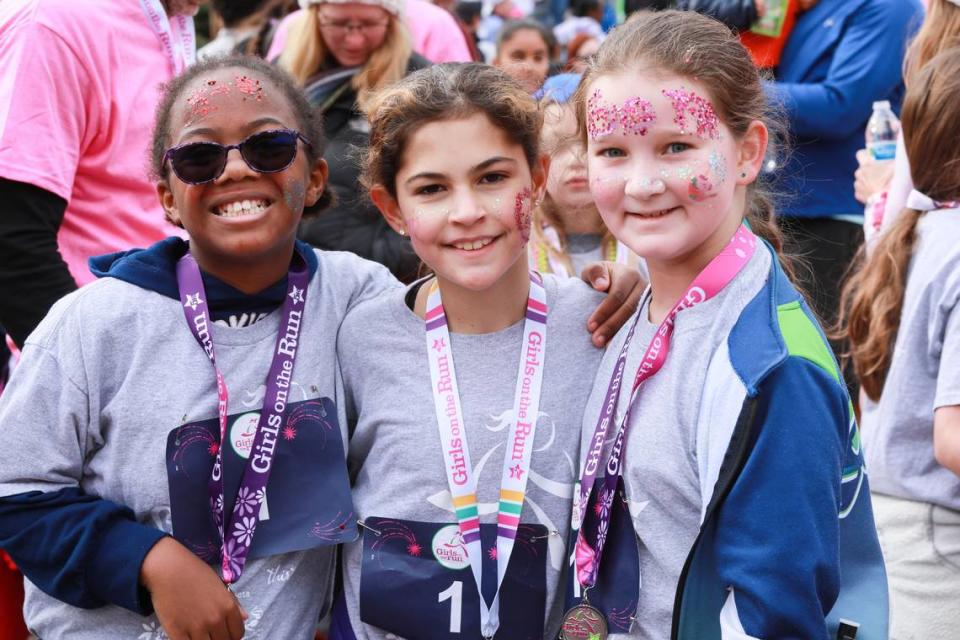
Krusch’s “GOTR” chapters served 1,168 girls in their most recent season, in Fall 2022. That’s just a fraction of the 200,000 young girls that the program serves each year.
“We’re not a track club,” Krusch said. “Running is just a tool we use to deliver a really awesome curriculum. When I was growing up, I wish I had had something like this.” A season’s full cost is $170 per girl in the Charlotte area, but scholarships and reduced rates are available based on need.
‘Girls on the Run’ grows up
As for Barker, “Girls on the Run” was her baby, and then her teenager, and then she let it grow up and go out into the world without her. As of 2013, she no longer was the primary “Girls on the Run” spokesperson or decision maker.
Now 62, Barker still lives in Charlotte, still runs, still lists “Girls on the Run founder” on her email signature and still keeps up with many of the original 13 girls who ran on that dirt track. But for the past 10 years, the former Ironman triathlete hasn’t had a formal role at “Girls on the Run.”
“I’m a starter,” Barker said. “I’m not a sustainer or maintainer. And the current team has done a beautiful job of sustaining and maintaining the organization. I’m just more of an innovator. So it was just kind of time for me to go.
“Somebody recently said that I’m someone who likes to poke the bear. I had never considered myself in that way, but I realize now I do get a little bit of juice from doing that. And that just wasn’t needed anymore at all. We were already changing things.”
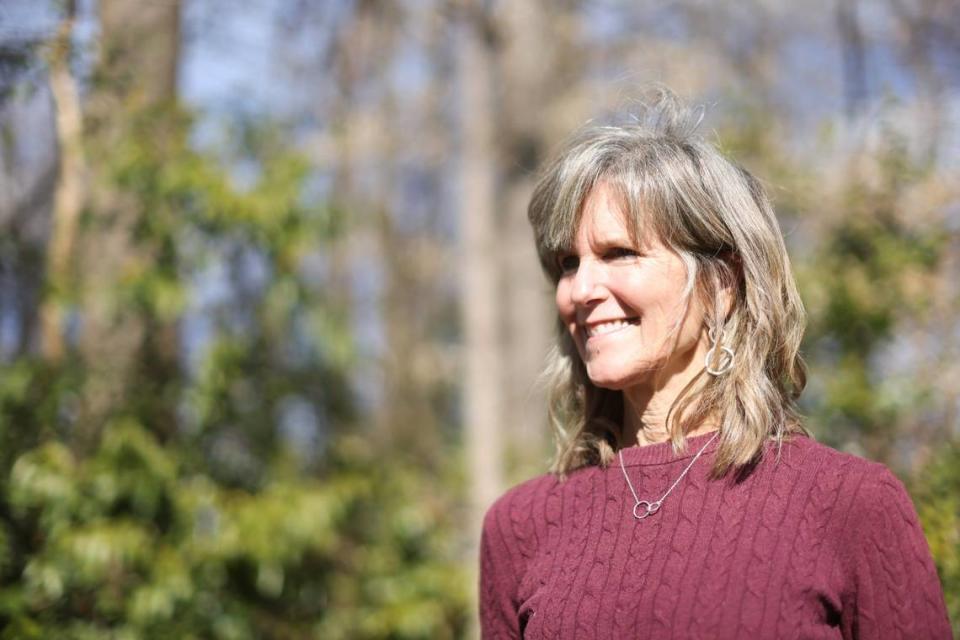
Barker now spends much of her time writing a memoir and working with a small nonprofit organization focused on affordable housing. In the meantime, “Girls on the Run” has expanded well beyond Barker’s original vision.
There is now programming for grades 3-8 — a middle school program called “Heart and Sole” was added in 2015 — and those life lessons have also changed with the times. Social media didn’t exist when “Girls on the Run” began, nor did COVID, and now both are part of the fabric of nearly every young girl’s life in some way.
But the concept remains the same: Teach young girls that they matter, through running and an after-school immersion in the “joy factory.”
Said Barker: “‘Girls on the Run’ exists so that when girls are beginning to feel the influences of those outer forces that would suggest they’re not good enough, smart enough, strong enough, that they have the skills to weather that time, and stay true to the essence of who they are.”
____
Editor’s note: If you want to sign someone up for a “Girls on the Run” program, volunteer for the organization or learn more about it, go to GirlsOnTheRun.org.

